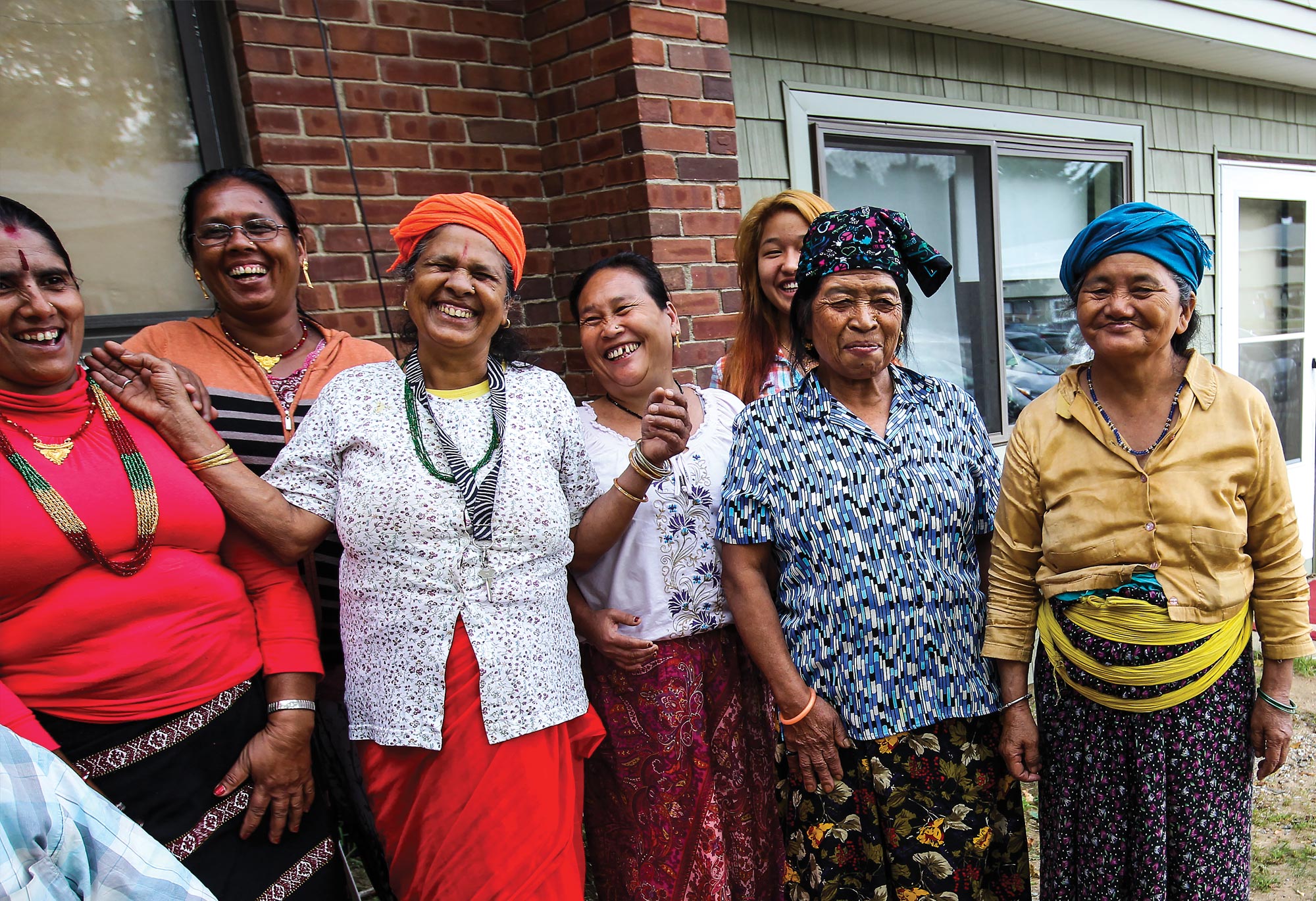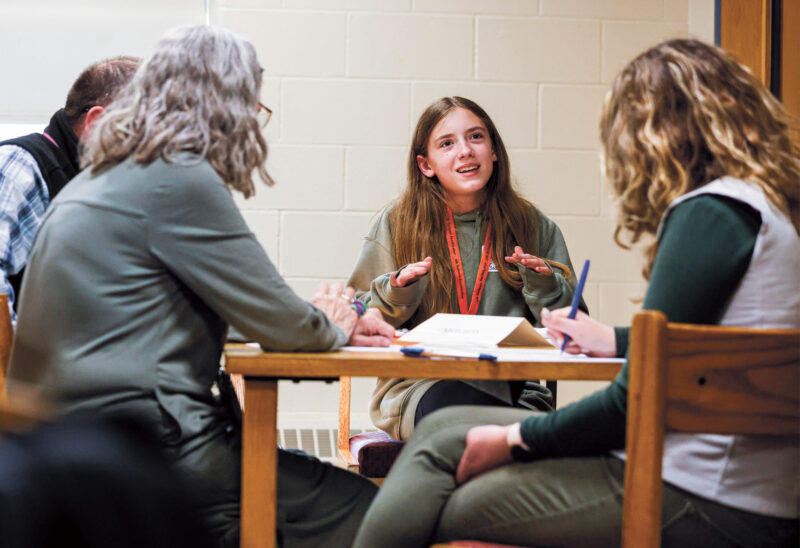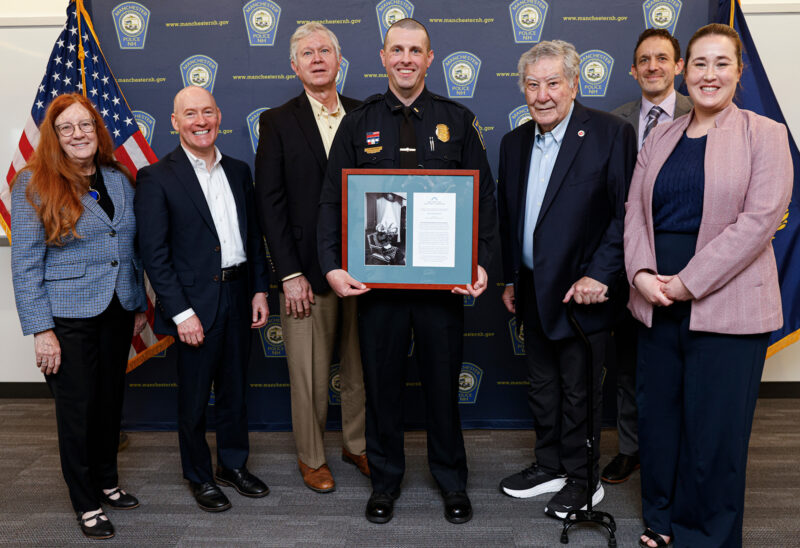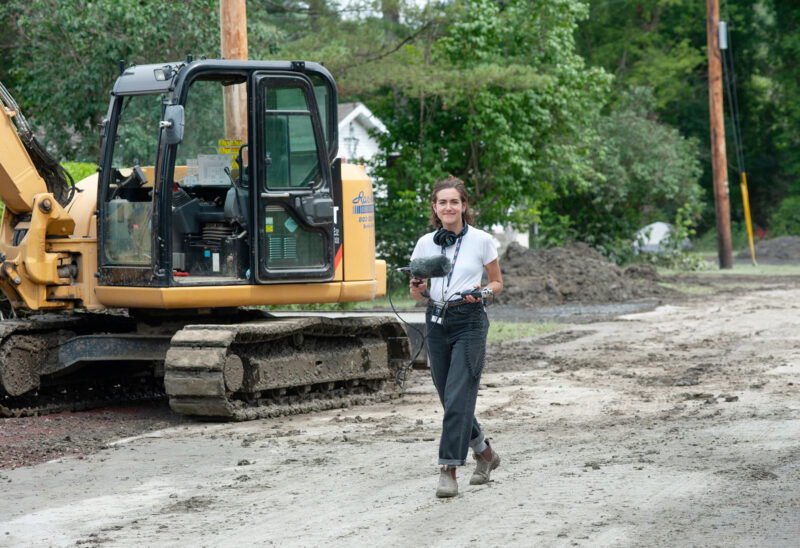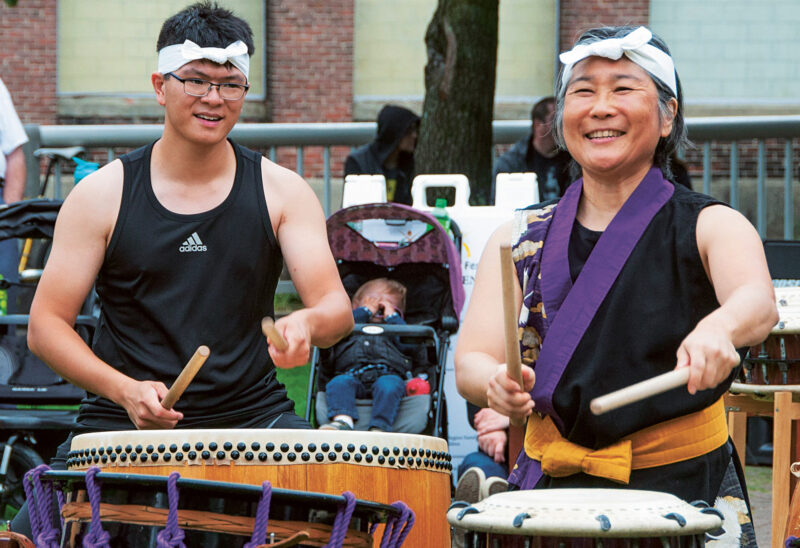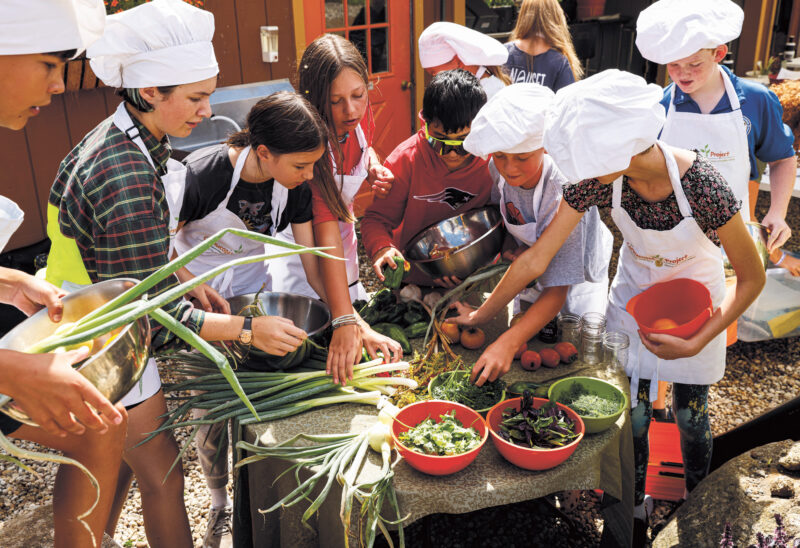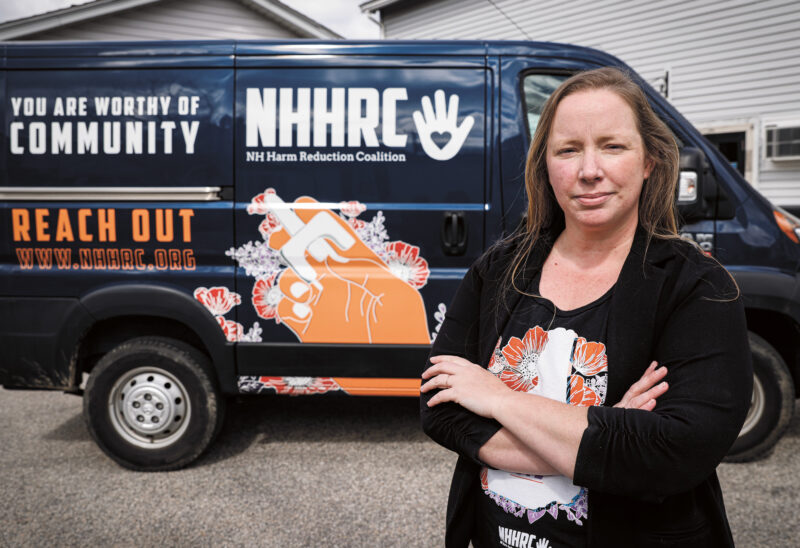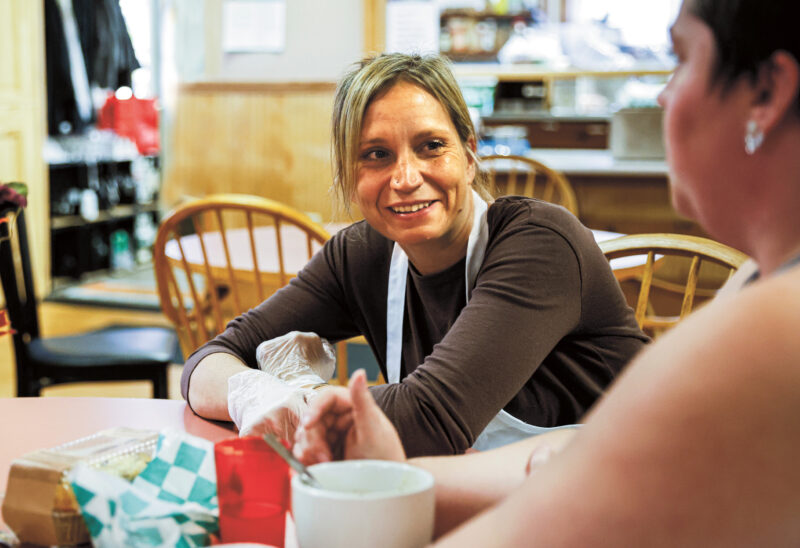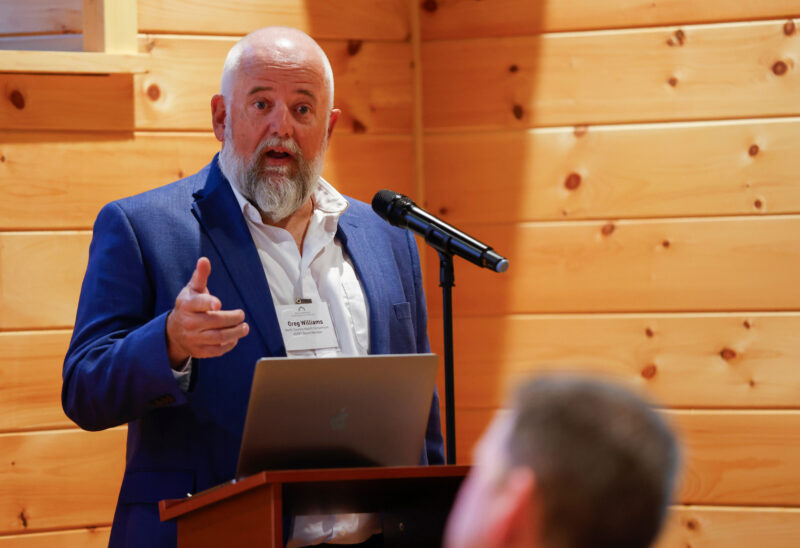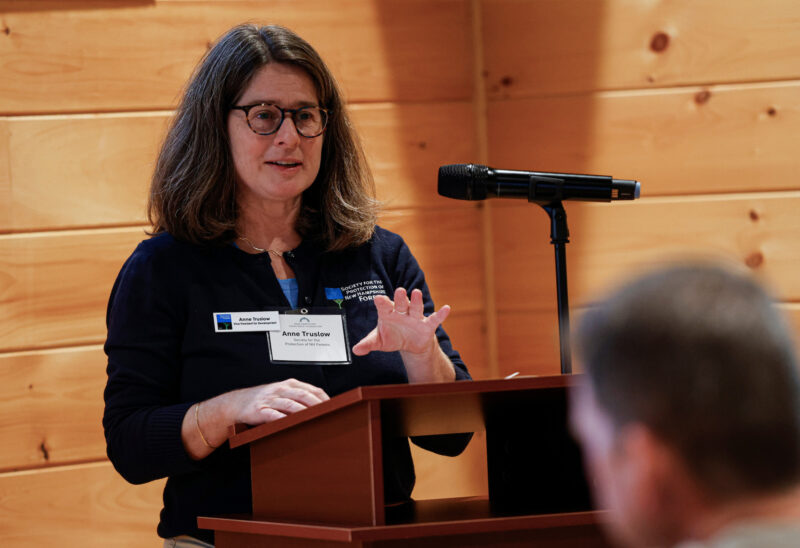When the soldiers came, Aiti Magar fled with her two-year-old daughter in her arms. She and her husband joined other refugees from southern Bhutan in an open truck, crossed into India and found their way to a refugee camp in Nepal.
“The army, they came to the village with guns and they started herding people,” Magar said, through an interpreter.
Magar and her family are Nepali-speaking Lhotshampas from southern Bhutan. The group had lived in Bhutan for generations, but some 100,000 were expelled after Bhutan’s king declared a “One Nation, One People” policy.
Nepal would not give them work permits or grant them citizenship, and Bhutan would not let them go home. They would live in refugee camps for 20 years.
Bhutan, a tiny Buddhist kingdom landlocked in the Himalayas, may be best known for championing the idyllic notion of “gross national happiness.” Three months after her husband died in the refugee camp, Magar and her daughters were resettled in Concord. They are among the approximately 70,000 Bhutanese refugees who have settled in the United States, 2,000 of them in New Hampshire.
The story of the refugees from Bhutan is the quintessential American immigration story: the flight from hopelessness to hope. Driven from homes and farms, persecuted and stateless, they are now working to build lives in the country that granted them refuge.
Like other ethnic immigrant groups, this community banded together to help one another. But in this case, in New Hampshire, they have banded together into a nonprofit organization with staff, a mission, goals and programs.
The Bhutanese Community of New Hampshire provides a range of services from offices in Concord and Manchester. Staff help with social services — from applying for health insurance and food stamps to finding housing, interpreting and providing transportation; the group’s business development manager makes connections with employers, and helps with resumes, job-seeking and placement; the group offers English-language and American history classes, youth and cultural programs.
Aiti and her two younger daughters — both of whom were born in the refugee camp — live in a tidy apartment in Concord. Rajita and Son attend high school, speak English fluently and dream of careers. Son works at Wendy’s to help support the family. Magar’s eldest — who was carried in arms from Bhutan — is now married.
Without the BCNH, Magar said “We would be on the streets. Hopeless.” Foundation support for BCNH includes a $15,000 capacity-building grant — which helped the organization to secure $150,000 in federal funds.
For Bhutanese refugees in New Hampshire, the BCNH is a lifeline. “They come to this office, and no matter what problem they have, we find resources to help and to resolve it,” said BCNH Executive Director Tika Acharya.
“They come to this office, and no matter what problem they have, we find resources to help and to resolve it."- Tika Acharya, BCNH executive directorTweet This
Acharya arrived in Manchester in January of 2009 with his parents, wife and grandmother. His son was born soon after; the four generations live together. Acharya’s father had been a businessman in Bhutan. One day, he failed to return from a business trip. He had been imprisoned and tortured. Acharya was just 13 when he was forced to flee alone, walking all night into India.
“When we found a village, they fed us fruit and water and we walked across the border,” Acharya said.
The family was reunited in a refugee camp in Nepal. Acharya was able to complete high school, and persevere to attend college and earn an MBA in India. The family lived in the camp for 17 years. Many Bhutanese refugees in the United States, Acharya said, “are really struggling.” Suicide rates are alarmingly high. The trauma of their expulsion, stigma of their status, language barriers and cultural bewilderment — some had never seen a computer, or a refrigerator — can be overwhelming.
“We try to reach out to every individual house and try to figure out what is going on there,” said Business Development Manager Rajesh Chauwan.
As with every group of American immigrants, the greatest hope lies with the next generation.
Acharya points with pride to the story of a student who participated in a Bhutanese Community-sponsored SAT-prep class. That young man was recently awarded a Gates Millennium Scholarship — one of 1,000 in the country.
Acharya wants his fellow Bhutanese in New Hampshire to become employers, homeowners, doctors.
“So we would give back to the United States,” he said. “The United States has rescued us … what we have to offer to the United States is to become productive citizens.”
TO LEARN MORE, VISIT WWW.BHUTANESECOMMUNITYNH.ORG
This story originally appeared in the Foundation’s 2014 Winter/2015 Spring Purpose Newsletter.

